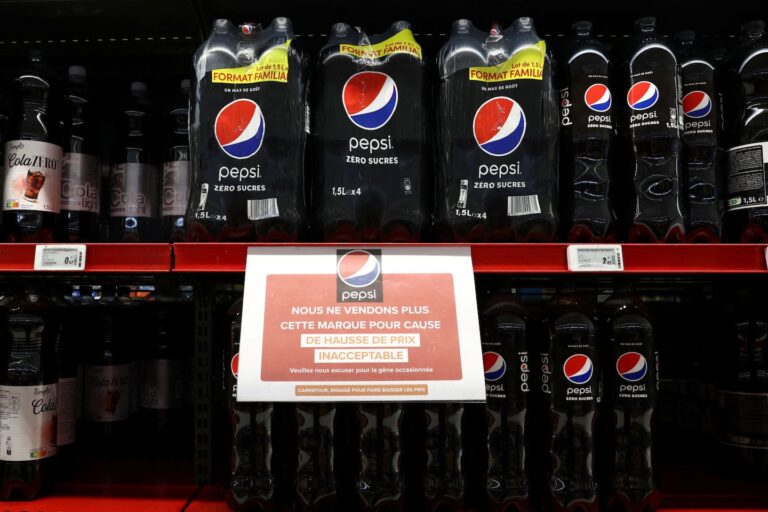
[ad_1]
A spokesperson for PepsiCo told The Post that the company has “been in discussion with Carrefour for many months and we will continue to engage in good faith to try to ensure that our products are available.”
The move from Carrefour comes as Europeans continue to battle with high food prices. In France, food prices rose more than 7 percent year-over-year in December. Price increases peaked in March of 2023, surging almost 16 percent, according to one estimate.
Retailers in the U.S. have also battled with suppliers to lower food prices. To apply pressure, some stores will put brands in the “penalty box,” said Randall Sargent, a partner in the retail and consumer goods division of the marketing consulting firm Oliver Wyman.
That could mean unfavorable placement on shelves, less promotion and higher prices, making the products “less attractive for consumers to buy that brand relative to another brand,” she said.
But in Europe, more aggressive tactics such as pulling all products is not uncommon, Sargent said. Grocery stores in the region are smaller, leaving less noticeable holes on shelves, and European consumers are already more inclined to buy stores’ own private brands, she said.
“While consumers are still very loyal to certain national brands, it’s a bit less disruptive when they’re pulled from the shelf because they’re already used to, and more willing in many categories, to shift to the private brand equivalent,” Sargent said.
Carrefour expects to grow its private label, according to a strategic plan published in 2022. The company aims to have its private label represent 40 percent of food sales in 2026 — up from 33 percent in 2022.
PepsiCo’s business in Europe accounts for about 14 percent of its global revenue, amounting at about $9 billion, the Wall Street Journal reported. Given Carrefour’s size and scale in the region, lost presence on shelves “will definitely hurt that the suppliers’ business in Europe, if not globally,” Sargent said.
[ad_2]